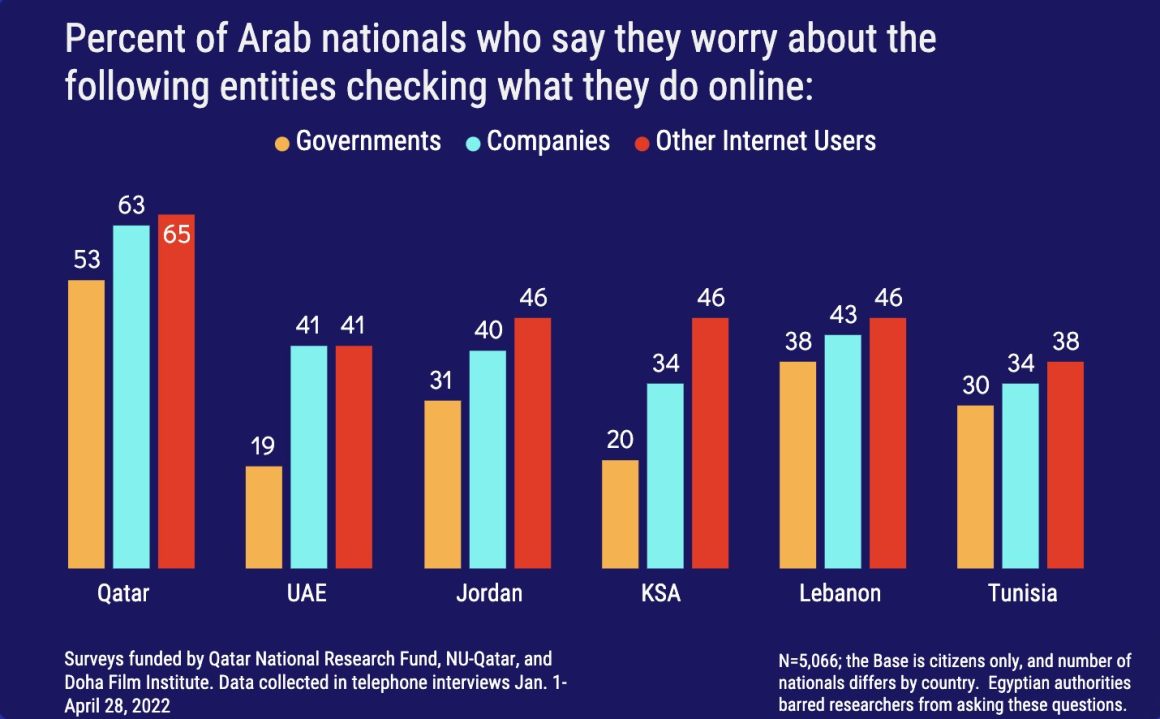As people spend more time online, concerns about digital privacy have also grown.
Compared to citizens of five other Arab nations, Qataris appeared to be the most concerned about online surveillance, whether by governments, businesses, and other internet users, according to a recent Qatar-based survey.
65% of Qataris were worried about other internet users checking what they do online, 63% feared surveillance by companies, and 53% by governments.
The findings were a part of the latest edition of the Media Use in The Middle East survey funded by the Qatar National Research Fund, Northwestern University in Qatar, and the Doha Film Institute.
The survey explores changes in media consumption patterns, attitudes and content preferences.
The researchers surveyed citizens of different Arab countries, including Lebanon, Saudi Arabia, Jordan, United Arab Emirates, and Tunisia. They were barred by Egyptian authorities from asking this specific question.
The survey demonstrates that concerns about government, business, and layperson surveillance are consistent across countries.

The full 2022 edition of the study, unlike previous versions of it, is currently not publicly available.
Previous survey results and changes in attitudes
In earlier editions of the survey, the results were different.
When compared to nationals in the other surveyed countries, more internet users in Saudi Arabia and the UAE expressed concern about corporate and governmental surveillance of their online activities back in 2018.
According to a 2019 survey, all nations, with the exception of Qatar, experienced a significant rise in concerns about businesses monitoring their online activity between 2013 and 2019.
Saudi Arabia and Tunisia were the only nations to experience a similar rise in concern about government surveillance back then.
Officials in Egypt in 2019 and in Qatar in 2013 both prohibited asking this question.
Arab countries are increasingly using information technology to censor content, block information flow, and even monitor citizens.
Currently, the countries spearheading digital authoritarianism in the Middle East are Saudi Arabia and the United Arab Emirates, who, in order to have more access to cutting-edge technologies, have increased their security cooperation with China and Israel.







